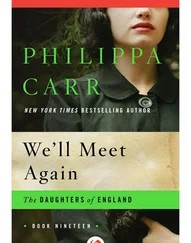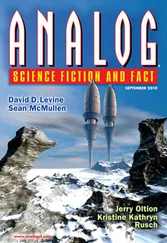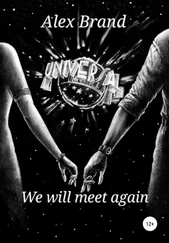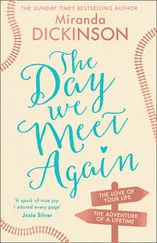I’ll tell you what I was thinking. I was thinking that probably in the twelfth century or earlier, before the mechanical clock had been invented, women preparing food would measure the time for cooking a dish by the number of psalms they read. I’d want someone reading my work to burn their beans to cinders.
Although I naturally enjoy disputing any sort of strict rule, it’s still clear to me that the first sentence of any text really is extremely important. It shouldn’t begin with a participle or a gerund, because instead of fine-tuning the fundamental action they only weaken it. It’s imperative to avoid too “poetic” a diction — no “halt”s or “nay”s, please. They make living language reek of the tomb; no matter how witty your metaphors, you can’t shake off that smell afterward. And while interjections might appear to be one of the most meaningless parts of speech at first glance, in reality they’re a powerful tool. One of an acquaintance’s school friends, who stayed behind in the country to raise four kids, wrote him a letter inviting him to come visit in the summer with his own family. She ended the letter intending to make humorous use of the interjection “ahem”—never used casually, and generally reserved, in print, for snide reviews. Her mind must have wandered, however, as it came out like this: “On the solstice, my brother will be coming too, with his kids; we’ll build a bonfire, and everyone can go have a dip in the lake. If you’re not coming — amen! — be sure to let me know.”
Despite everything, the publisher had sown a seed in my brain. He had thrown an offer at my feet like one of Dumas’s heroes might throw down his glove. Did I really not have it in me to write a book? A real one. Some three hundred pages. Two hundred fifty, at the very least. Pamela Anderson managed it. Madonna. Even her little daughter is writing now, I hear. (Mama’s editing it.) I’ve long since known that just about any nonsense, written down with some basic understanding of grammar, can become a book in most people’s eyes. It’s not the text that’s important; it’s the image. What a trap. As Camus said: “Any artist who goes in for being famous in our society must know that it is not he who will become famous, but someone else under his name, someone who will eventually escape him and perhaps someday will kill the true artist in him.”
In order for a writer to make herself an “image,” I think, one needs to begin with three things — a face, a name, and a lifestyle. When I mentioned to my neighbor that I wanted to get braces put on my teeth because I wanted to have my picture taken, and thought I should look up-to-date for the occasion, he asked me how much they would cost. And that was the right question. Money is my weak spot. For example, I only find rich men handsome. To me, their attractiveness is directly dependent on their bank accounts. Back when I used to see a psychiatrist, she said this was an instinct typical of both sexes (but more, perhaps, of women), and even as I got older and, let’s say, wiser, I would never really be able to entirely overcome that flaw. Supposedly, she added, when the economy is in an upswing, it helps suppress this instinct a bit. My neighbor advised me, in the end, against donating thousands to my dentist. Rather than braces, he said, just have your picture taken with the teeth of a zipper stuck under your upper lip.
Still, even when money is involved, a woman like me would only ever agree to change her name through a unique convergence of coincidence and sentiment. And I, a forty-five-year-old woman, being of completely sound mind and of my own free will, as they say, have sent love packing. But, two weeks ago, purely by chance, I started getting letters from an aging American man. He got my address from a distant relative of mine. He was searching for an “intelligent woman who has a sense of humor” to be his pen pal. I liked his last name best — Faulkner. Oh, and his parrots. He sent me pictures of them, and himself, via e-mail. One of the birds knows how to say “Hannah wants a cracker.” And why not have a different last name, after all? Giedra Faulkner …
In the evenings, it’s quiet now at my and my daughter’s building. Sometimes it seems as if the quiet is flowing from me like oil. I hear my houseplant shooting its ripened seeds at the window from a swollen, three-sided pod. I close my eyes, freeze, “And suddenly, like in the ads, Eternity. But not the time. Not the place.” The cat and I take turns sipping tea with milk from an English porcelain saucer.
Later we bite our nails. It’s a habit I seem to have picked up recently. I blame reality shows. I watch them too often. I bite my nails because I’m afraid. Because it seems to me that the people on those shows, on their first days — I mean the people as they once were, when they arrived at a studio for the first time—“disappear without a trace,” and no one even notices. Whereas the cat bites his nails because he doesn’t like it when I cut them with special scissors — something I can only do after first pretending — despicably — that I’m only coming over because I want to pet him. Later I find his clippings in my slippers or the breadbox. And sometimes we share an armchair and listen to salsa. If his tail should drop off the edge of the chair, the cat quickly nudges it back with his paw; it offends him that not all of him can fit on the cushion at once. The salsa CD was left for me at a certain publisher’s by an unknown person who added an unaggressive little love letter. Signed it “Johnsiera.” When I asked what the man who brought the disc looked like, the women in the office shrugged their shoulders, as if he’d been November’s wind or snow. I like the frothy rhythm of salsa — it too is like November’s wind and snow … And I happen to think that “Johnsiera” is not a he but a she, a friend of mine who translates Polish poetry for that publisher — but I haven’t said anything to her yet. Let her believe she’s pulled the trick off.
When the trains go by at night, I hear my room’s doors and windows vibrating. Like an earthquake building to a crescendo. This summer, after the earthquake we had in Vilnius, a Danish tourist was given the following instructions: when you feel the first vibrations, stand in a doorway holding some kind of identification. The doorway provides some protection from objects (or plaster) falling from above, while the documents come in handy when it comes time to identify what’s left of you. When the ground starting shaking again a few hours later, he took up his post in the doorway of the  ili pizzeria — both hands clutching whatever personal documents he’d brought along, and with a Vilnius bank card between his teeth.
ili pizzeria — both hands clutching whatever personal documents he’d brought along, and with a Vilnius bank card between his teeth.
In the bathtub, having a long soak, I sometimes hear a dog barking. A big, vicious, energetic one, and not old yet, either. I sink underwater to get away from the sound. How often I’ve tried, most meticulously, to deduce who lives to the left of me. I know the seamstress Liuda only has a female cat. When the cat went into heat (on the 14th of February — as though she’d planned it), the thing pooped on my doormat. Out of anger and desire (they’re frequently related), because she smelled my own cat, but he, no matter how she meows, refuses to answer. Like me, he doesn’t like flirting through doors. Downstairs on the left is a fried meat pie cafe, and the neighbors above me have only children. So there’s nothing beyond the thick bathroom wall, the way I figure it. Except for another building, which, when you’re looking at it from outside, seems like part of the same building. There could be a small closed courtyard, too. I imagine it overgrown with chickweed; perhaps there’s a pump in the center, painted with oils. But I’ve never come across anyone coming out of the other gateway with a dog. For four years now, that barking while I’m bathing has been a hairy mystery to me. One of Cortàzar’s characters had a similar problem. His was the sound of a woman’s resigned weeping all night long in a hotel room. He was tormented by it, or rather from speculating as to what could cause such inexhaustible weeping. The man nearly went insane from lack of sleep. But afterward, it seems, some kind of story developed out of it.
Читать дальше
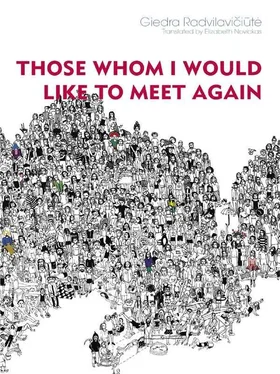
 ili pizzeria — both hands clutching whatever personal documents he’d brought along, and with a Vilnius bank card between his teeth.
ili pizzeria — both hands clutching whatever personal documents he’d brought along, and with a Vilnius bank card between his teeth.